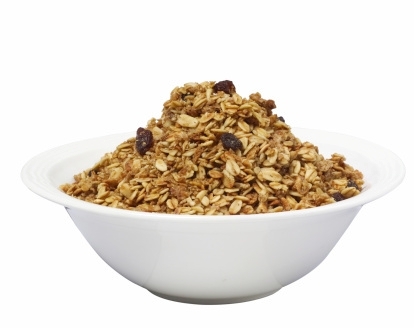USDA Food Pyramid Guidelines
With the release of the new USDA food pyramid guidelines, there are officially five food groups. Oils and butters are now included as a food group; but for the purpose of this paper, we are still going to consider ourselves to have only four.
The four food groups mentioned by the USDA food pyramid are grains, fruits, vegetables, meats, and dairy. Let’s take a look at each food group mentioned by USDA food pyramid and discuss a few of the more important points from each group.

Cereals
Cereals are so numerous there’s not enough room on fifty pages to discuss the varieties offered. Rice and pasta are a little more limited in their offerings, but are still quite varied.
Almost every choice we make in this group of USDA food pyramid will have vitamins and minerals added for our nutritional supplementation. That’s a good thing, since most of us won’t consume our recommended dietary allowance, or even get close without the fortification of our milk and grain food group.
Grains
Grains cover a broad range of food: pasta, rice, cereals and breads. That’s quite an array of food. Breads come in so many varieties; wheat, rye, pita, and white are the more popular varieties.
Vegetables
The next food group of USDA food pyramid to be discussed is the vegetable group. Okay, here is the opportunity to score real nutritional “brownie” points, since it’s almost impossible to make a bad choice, or even overeat.
The only members of this food group of USDA food pyramid that we must be careful to not exceed are the starchy vegetables. These vegetables have a tendency to turn into sugar once consumed, and we usually don’t need an excess of sugar.
Fruits
Fruits are a healthful category of USDA food pyramid, so long as we remember to watch our consumption of fruits that provide too much sugar. Most fruits contain naturally occurring sugars; although these occur naturally in the food, it doesn’t mean we need to consume uncontrolled quantities. A healthy daily allowance of fruit includes about 4 servings.
Meat
The meat, poultry, fish, dry beans and eggs food group contains the protein your body needs in order to develop properly. Without protein, your brain and many other body organs do not properly develop. If not properly developed, they will not work properly.
Protein is one of the most important pieces of our growth and development needs. The down side in this food group of USDA food pyramid , would be the fact that animal meats have naturally occurring cholesterol, and although some cholesterol is good for us, too much is unhealthy.
Dairy
The last food group of USDA food pyramid we’re going to discuss is the dairy food. Milk, yogurt, and cheese belong to this food group of USDA food pyramid . Again, one of the most important vitamins we need, can be found in this food group of USDA food pyramid .
Calcium is essential to the optimal functioning our cell processes, and the growth of our bones. Calcium has a tremendous effect on the health of our heart and other vital organs. Inadequate consumption of calcium can lead to long-term life altering consequences.
Osteoporosis is the leader among crippling of post menopausal women, and it is simply due to a lack of needed calcium during the earlier years. It is absolutely necessary for everyone, children and adults to understand the importance each of these four food groups of USDA food pyramid plays in our healthy development, from childhood to old age.
-
Why Weight Loss is Important for Women
Being overweight or obese can not only be restrictive but dangerous to
-
Teen Bulimia
Eating disorders, in most cases, are self image disorders, and any
-
From 274 Pounds To UltraMarathoner Without Injury
At age 46, Bluemont, Virginias Susan Jennings weighed a health-thre
-
Poor Self Esteem Because Of Body Image? Discover A New Health Method For Losing Weight and Start to Enjoy Your Body Now
Are you suffering from poor self esteem due to body image issues? H
-
Integrate The African Mango Weight-reduction plan Drugs Into Your Weight Loss System
Fleshy or obese people presently have hope in having an improved lease
-
The Biggest Problem With Rapid Weight Loss Diets
Lets face it, who wants to spend weeks, months or even years to lose w
- DON'T MISS
- Weight Loss Helps Kidney Function in Chronic Kidney Disease
- Different Types of Adult Obesity and Herbal Drugs
- Are You Caught Up In A Cycle OfFat Loss & Fitness Confusion?
- Do Weight Loss Cures Really Exist?
- Greek Yogurt Burns Fat!
- Your Roadmap To Optimal Intestinal Health
- The Diet Bore
- Can Drinking Ice water help Burn Calories?
- Meet Your Weight Loss Goals With Healthy Eating And Exercise
- Strength Training Tips for Senior’s




